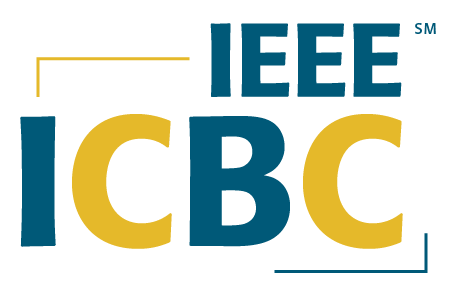Blockchain for Cyberphysical Systems: Applications, Opportunities and Challenges.
Abstract, Objective and Motivation
In a cyber-physical system (CPS), computing elements coordinate and communicate with sensors, which monitor cyber and physical indicators, and actuators, which modify the cyber and physical environment where they are run. Current CPS ecosystems rely on centralised, brokered communication models, otherwise known as the client-server paradigm. All devices are identified, authenticated and connected through cloud servers and the data collected by the devices is stored in the cloud for further processing. While this model has connected generic computing devices for decades and will continue to support small-scale CPS networks as we see them today, it will not be able to respond to the growing needs of the large-scale CPS ecosystems of tomorrow with billions of connected devices. Cloud servers will remain a bottleneck and point of failure that can disrupt the entire network. This is especially important as critical services and infrastructure such as healthcare, electric grids, logistics, transportation become dependent on CPS. The current stove-piped architecture has also created isolated data silos, where users have limited control over their data and how it is used. Users have to trust the cloud and application providers and have no choice but to rely on their promises of security and availability.
In this tutorial we will explore how Blockchain (BC) technology has the potential to overcome the aforementioned challenges. BC is an immutable timestamp ledger of blocks that is used for storing and sharing data in a distributed manner. The stored data might be payment history, e.g. Bitcoin, or a smart contract or even personal data. In recent years, BC has attracted tremendous attention from practitioners and academics in different disciplines (including law, finance, and computer science) due to its salient features which include distributed structure, immutability and security and privacy.
The tutorial will specifically consider four key aspects of CPS which include: (i) Internet of Things; (ii) Intelligent Transportation; (iii) Supply Chain; and (iv) Smart Grids. We will explain relevant concepts, review the state-of-the-art, present representative solutions that have been proposed and discuss open challenges.
Timeliness and Intended Audience
BC is a disruptive technology that has received interest from academics and practitioners in diverse domains including computer science, law, business and policy. BCs and their inherent combination of consensus algorithms, distributed data storage and secure protocols can be used to increase scalability, robustness and reliability for a wide range of industries. A recent article [1] has outlined that BC has the potential to transform 50 major industries and thus permeate to all areas of our lives. Market Reports Centre[1] is forecasting that the blockchain market size to reach $60.7 billion in 2024. Applying this technology across different disciplines will exhibit a variety of complicated problems and new requirements, which brings more open issues and challenges for research communities. This tutorial presents an opportunity for ICBC attendees to obtain a comprehensive overview of this exciting technology and see examples of how it can be applied to solve practical problems in diverse domains.
This tutorial is open to researchers, academics, students and practitioners working in the area of cyberphysical systems and blockchain technology, and anyone with a broad interest in distributed systems and pervasive computing. The required prior knowledge is minimal and should not preclude any ICBC participants.
Biography
Salil Kanhere, UNSW Sydney, Australia
Salil received his M.S. and Ph.D. degrees, both in Electrical Engineering from Drexel University, Philadelphia. He is currently a Professor in the School of Computer Science and Engineering at the UNSW Sydney, Australia. His current research interests include pervasive computing, Internet of Things, blockchain, crowdsourcing, mobile networking, privacy and security. He has published over 200 peer-reviewed articles and delivered over 30 keynote talks and tutorials on these topics. He has received 4 Best Paper awards. His h-index is 42 and his research has received over 6350 citations. He is a contributing research staff at Data61, CSIRO and was a faculty associate at Institute for Infocomm Research, Singapore from 2013-2016. Salil regularly serves on the organizing committee of a number of IEEE and ACM international conferences (e.g., IEEE PerCom, ACM MobiSys, ACM SenSys, ACM CoNext, IEEE WoWMoM, IEEE LCN, ACM MSWiM, IEEE DCOSS, IEEE SenseApp, ICDCN, ISSNIP). He serves as the Area Editor for Pervasive and Mobile Computing and Computer Communications. Salil is a Senior Member of both the IEEE and the ACM. He serves on the executive committee of the IEEE Computer Society’s Technical Committee on Computer Communications (TCCC) and is an ACM Distinguished Speaker. He is a recipient of the Humboldt Research Fellowship.
Raja Jurdak, Data61 CSIRO, Australia
Raja is a Senior Principal Research Scientist at CSIRO, where he leads the Distributed Sensing Systems Group. He received his MSc and PhD in Information and Computer Science at University of California, Irvine. His current research interests focus on energy-efficiency, mobility, and trust in networks. He has led several large scale and long-term sensing projects on sensing remote and challenging environments, in agriculture, ecology, health, manufacturing, and energy. Most recently, he has led the large Batmon project for continental scale tracking of flying foxes, delivering near-perpetual tracking of small assets. His research at CSIRO has received multiple awards, including the CSIRO medal for environmental achievement and the Endeavour Executive Award in 2011, the Queensland iAwards Merit Award in 2014, and the best paper award at the EWSN conference in 2016. Raja has over 140 peer-reviewed journal and conference publications, as well as a book published by Springer in 2007 titled Wireless Ad Hoc and Sensor Networks: A Cross-Layer Design Perspective. He worked has received over 3800 citations, and he has an h-index of 29. He serves on the editorial board of 3 international journals. He regularly serves on the organising and technical program committees of international conferences (DCOSS, RTSS, Sensapp, Percom, EWSN, ICDCS, Blockchain, WoWMoM). He is an Honorary Professor at University of Queensland, and Adjunct Professor at Macquarie University and James Cook University. He is a Senior Member of the IEEE.
Ali Dorri, UNSW Sydney, Australia
Ali Dorri is a Ph.D. student at UNSW Sydney and Postgraduate research student at CSIRO, Australia. His research interest includes blockchain applications and challenges for large scale networks including the Internet of Things, smart cities, smart grid, and e-health. He has published over 20 peer-reviewed papers which collectively received about 660 citations. His papers in blockchain applications and challenges are ranked as top-cited and most popular papers in their respective venues. His conference papers published in Percom workshop and IoTDI are ranked as the most popular papers in the IEEE Digital Library and ACM SIGBED.
Technical Issues Addressed in the Tutorial
The tutorial will present an overview of cyberphysical systems and motivate the use of blockchain technology for such systems. We will demonstrate specific examples of how BC has been used to address key research challenges in CPS with a particular focus on four domains: (i) Internet of Things (ii) Intelligent Transportation, (iii) Supply Chains and (iv) Smart Grids. We will outline how the key building blocks of BC such as consensus algorithms, distributed data storage and secure protocols can be leveraged to overcome various open issues. We will also identify open research problems and opportunities.
Outline of Tutorial Content. (Duration: 1.5 hours)
- Blockchain in Internet of Things
- Overview
- Key Challenges
- Blockchain solutions for IoT
- Open Issues
- Blockchain in Intelligent Transportation
- Overview
- Key Challenges
- Blockchain based approaches for Intelligent Transportation
- Open Issues
- Blockchain in Supply Chain
- Overview
- Key Challenges
- Blockchain solutions for supply chain management
- Open Issues
- Blockchains in Smart Grids
- Overview
- Key Challenges
- Blockchain solutions for distributed energy trading in smart grids
- Open Issues
- Conclusions
- Summary
- Future Directions
Experience of speakers in the topic of the proposed tutorial
The two speakers have established a research group that specifically focuses on BCs and their applications in CPS. They have co-authored several peer-reviewed research articles on BC and its specific applications in CPS. The speakers worked with a start-up to conduct a trial of a world-first cryptocurrency-based loyalty program on the UNSW Sydney campus which included over 170 participants. Their research has received extensive media coverage including ZDNET, Technology Decisions, Forbes, CMO, etc. Their article on the use of blockchain technology in the automotive domain published in IEEE Communications Magazine was among the five most read articles during all of 2018.
In a broader context, the speakers have worked on various aspects of CPS including embedded sensor networks, Internet of Things, mobile networks and crowdsourcing for over 10 years. They have collectively authored over 200 papers in this area and have received external funding of over A$15 million and have worked with a number of industry partners including NEC, IBM, TCS.
Previous tutorial experience of speakers
The speakers have delivered over 13 half-day technical tutorials at a number of IEEE conferences including Globecom 2018, ICC 2016, SenZations Summer School 2014, ICC 2012, PIMRC 2012, ANTS 2012, VTC 2011, MDM 2011, ICON 2011, ISSNIP 2011.
They have also delivered keynote talks at international conferences and workshops including IFIP Networking 2018, IEEE INDICON 2018, IEEE On-Move 2016, IEEE WLN 2015, ICDCIT 2013, MSLDA 2014, SenseApp2013, ISSNIP 2014, ISSNIP 2013, ICON 2012.
Prior Delivery of tutorial
This tutorial was delivered at IEEE GLOBECOM in Abu Dhabi, UAE in December 2018. We received a favourable turnout with about 40 attendees. However, there is likely to be minimal overlap between attendees at ICBC and those at GLOBECOM.
References
[1] “Banking Is Only The Beginning: 50 Big Industries Blockchain Could Transform, CBInsight, https://www.cbinsights.com/research/industries-disrupted-blockchain/
| PATRONS |
 |
 |
 |
| PLATINUM | GOLD | GOLD |
 |
 |
| SILVER | SILVER |
| BRONZE | BRONZE | BRONZE |
| SUPPORTERS |


